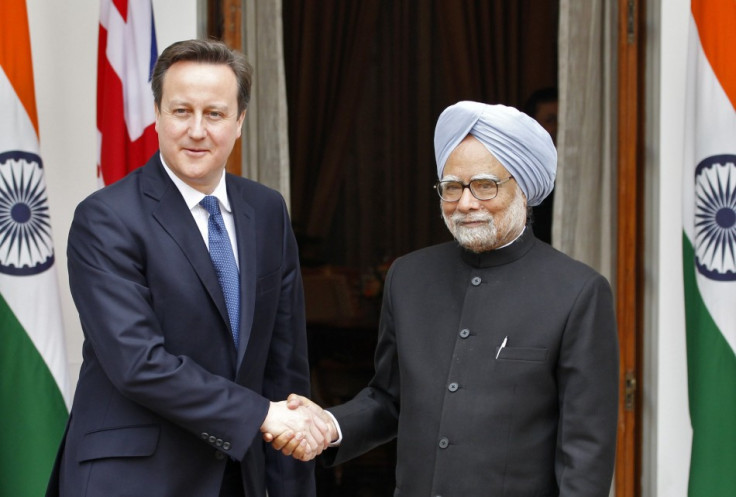Cameron Expresses Regret for Colonial Massacre in Amritsar [VIDEO]

David Cameron has become the first serving British prime minister to express regret for the Jallianwala Bagh massacre perpetrated by British troops upon Indian civilians in 1919.
Cameron paid homage to the victims in the Sikh holy city of Amritsar in India's Punjab state, placing a wreath at the city's memorial as a mark of respect for the victims.
Cameron, who is on the last leg of his three-day visit to India, dubbed the massacre as "a deeply shameful event in British history".
Cameron wrote in the memorial book of condolences: "We must never forget what happened here." He also visited the famous Golden Temple in the city before going to the memorial.
Cameron stopped short of an apology over the killings which claimed the lives of at least 379 unarmed civilians after soldiers opened fire at a gathering without warning.
According to a separate inquiry, nearly 1,000 were killed in the incident.
"There are ties of history [between Indian and UK] - both the good and the bad. In Amritsar I want to take the opportunity to pay my respects at Jallianwala Bagh," said Cameron ahead of his visit.
When asked about the colonial past, he said: "I would argue it's a strength, not a weakness. Of course there are sensitive issues, sensitive events, but actually the fact that Britain and India have this history, have a shared culture and a shared language, I think is a positive."
Cameron is following in the footsteps of the Queen and Prince Phillip, who also placed wreaths at the same place 16 years ago.
The Queen said ahead of her own visit to the memorial: "It is no secret that there have been some difficult episodes in our past. Jallianwala Bagh, which I shall visit tomorrow, is a distressing example.
"But history cannot be rewritten, however much we might sometimes wish otherwise. It has its moments of sadness as well as of gladness. We must learn from the sadness and build on the gladness."
Although many British politicians have voiced regret over the incident, no serving prime minister has done so until now.
Winston Churchill, then secretary of state of war, had described the massacre as a "monstrous event," a year after it took place. Tony Blair, before becoming prime minister, had said the Amritsar memorial is a stark reminder of "the worst aspects of colonialism".
Opinion is divided over whether Cameron's expression of regret will help further boost the relationship between the UK and India.
Bollywood film star Aamir Khan, who met Cameron, said following the meeting: "What happened in the past happened in the past. I don't think we can hold the present generation of Britishers responsible for what happened ages ago. It is not fair. I don't think that they owe us an apology for what happened a century ago."
© Copyright IBTimes 2025. All rights reserved.






















